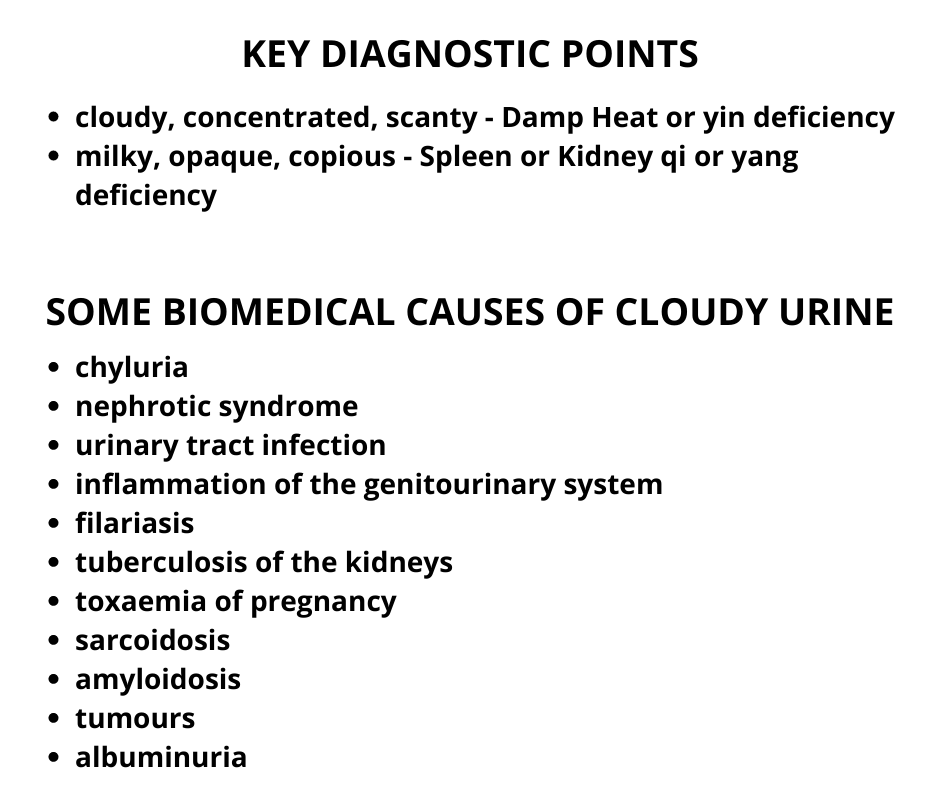
Cloudy urination refers to urine that appears milky or cloudy like rice water, or urine that may appear clear but precipitates sediment if allowed to stand. There is no, or only very mild pain associated with urination.
Damp Heat
This type of cloudy urine is most often a manifestation of lower jiao Damp Heat of internal origin. That is, the Damp Heat has been produced in the middle jiao by excess consumption of rich food and alcohol and has then sunk into the lower jiao. The Damp Heat can also arise directly in the lower jiao by the condensing action of internal Heat on Fluids. Such internal Heat is produced by yin deficiency or long term qi or Damp stagnation.
Less often, Damp Heat type cloudy urine may be the result of external Damp Heat pathogen that invades through the tai yang (Bladder) channel, the leg yin channels or the local luo channels. External Damp Heat typically causes acute painful urination. However, if the Damp Heat is unresolved or lingering, the urine may become cloudy.

Spleen Deficiency
Overwork, excessive worry or mental activity, irregular dietary habits or prolonged illness can weaken Spleen qi; Spleen qi naturally ascends creating the appropriate equilibrium for the descent of turbid waste materials, so it is said the Spleen governs ‘the raising of the clear and descent of the turbid’. If this activity fails, the ‘clear and turbid’ intermingle and sink, settling in the lower jiao and Bladder. Also, when the Spleen is weak, food and fluids are poorly processed and Dampness may accumulate.

Kidney Deficiency
Kidney deficiency manifests as either yang or yin deficiency. A tendency to Kidney weakness can be inherited and it certainly increases with age. Chronic illness, excessive sexual activity and many pregnancies also weaken the Kidneys.
Kidney yang or qi is particularly affected by prolonged exposure to cold conditions or excessive lifting or standing. In some cases, particularly in younger people, Kidney qi may be weakened while Kidney yang remains intact, in which case the cold symptoms are not seen.
Kidney yin is damaged through overwork (especially while under stress), insufficient sleep, febrile diseases, insufficient hydration and the use of prescription and recreational drugs.
The Kidney and Bladder are closely related, so weakness of the Kidney can affect the Bladder. When Kidney qi is weak, the Bladder is vulnerable to pathogenic invasion (through the tai yang, leg yin channels or local luo channels), especially Damp Heat.


Treatment
After a diagnosis from a qualified practitioner has been given, acupuncture and herbal medicines are recommended to support correcting any systemic imbalances that may be present.
